11 start with O start with O
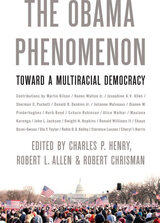
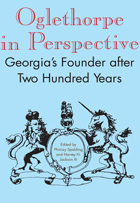
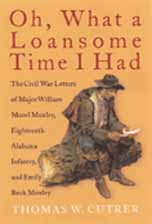
Most surviving correspondence of the Civil War period was written by members of a literate, elite class; few collections exist in which the woman's letters to her soldier husband have been preserved. Here, in the exchange between William and Emily Moxley, a working-class farm couple from Coffee County, Alabama, we see vividly an often-neglected aspect of the Civil War experience: the hardships of civilian life on the home front.
Emily's moving letters to her husband, startling in their immediacy and detail, chronicle such difficulties as a desperate lack of food and clothing for her family, the frustration of depending on others in the community, and her growing terror at facing childbirth without her husband, at the mercy of a doctor with questionable skills. Major Moxley's letters to his wife reveal a decidedly unromantic side of the war, describing his frequent encounters with starvation, disease, and bloody slaughter.


Devoted to themes that range from the “cosmism” of pre-Revolutionary Russian modernism to the philosophical implications of Moscow’s garbage, Kabakov’s handmade booklets were typed out on paper, then stapled or sewn together using rough butcher paper for their covers. Among these writings are faux Socialist Realist verses, theoretical explorations, art historical analyses, accompaniments to installation projects, and transcripts of dialogues between the artist and literary theorists, critics, journalists, and other artists.
This volume offers for the first time in English the most significant texts written by Kabakov. The writings have been expressly selected for this English-language volume and there exists no equivalent work in any language.
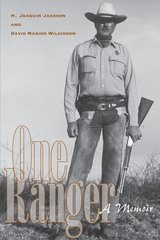
When his picture appeared on the cover of Texas Monthly, Joaquin Jackson became the icon of the modern Texas Rangers. Nick Nolte modeled his character in the movie Extreme Prejudice on him. Jackson even had a speaking part of his own in The Good Old Boys with Tommy Lee Jones. But the role that Jackson has always played the best is that of the man who wears the silver badge cut from a Mexican cinco peso coin—a working Texas Ranger. Legend says that one Ranger is all it takes to put down lawlessness and restore the peace—one riot, one Ranger. In this adventure-filled memoir, Joaquin Jackson recalls what it was like to be the Ranger who responded when riots threatened, violence erupted, and criminals needed to be brought to justice across a wide swath of the Texas-Mexico border from 1966 to 1993.
Jackson has dramatic stories to tell. Defying all stereotypes, he was the one Ranger who ensured a fair election—and an overwhelming win for La Raza Unida party candidates—in Zavala County in 1972. He followed legendary Ranger Captain Alfred Y. Allee Sr. into a shootout at the Carrizo Springs jail that ended a prison revolt—and left him with nightmares. He captured "The See More Kid," an elusive horse thief and burglar who left clean dishes and swept floors in the houses he robbed. He investigated the 1988 shootings in Big Bend's Colorado Canyon and tried to understand the motives of the Mexican teenagers who terrorized three river rafters and killed one. He even helped train Afghan mujahedin warriors to fight the Soviet Union.
Jackson's tenure in the Texas Rangers began when older Rangers still believed that law need not get in the way of maintaining order, and concluded as younger Rangers were turning to computer technology to help solve crimes. Though he insists, "I am only one Ranger. There was only one story that belonged to me," his story is part of the larger story of the Texas Rangers becoming a modern law enforcement agency that serves all the people of the state. It's a story that's as interesting as any of the legends. And yet, Jackson's story confirms the legends, too. With just over a hundred Texas Rangers to cover a state with 267,399 square miles, any one may become the one Ranger who, like Joaquin Jackson in Zavala County in 1972, stops one riot.
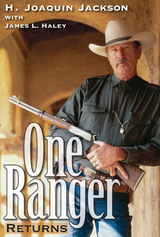
No Texas Ranger memoir has captured the public's imagination like Joaquin Jackson's One Ranger. Readers thrilled to Jackson's stories of catching criminals and keeping the peace across a wide swath of the Texas-Mexico border—and clamored for more. Now in One Ranger Returns, Jackson reopens his case files to tell more unforgettable stories, while also giving readers a deeply personal view of what being a Texas Ranger has meant to him and his family.
Jackson recalls his five-year pursuit of two of America's most notorious serial killers, Henry Lee Lucas and Ottis Toole. He sets the record straight about the role of the Texas Rangers during the United Farm Workers strike in the Rio Grande Valley in 1966-1967. Jackson also describes the frustration of trying to solve a cold case from 1938—the brutal murder of a mother and daughter in the lonely desert east of Van Horn. He presents a rogue's gallery of cattle rustlers, drug smugglers, and a teetotaling bootlegger named Tom Bybee, a modest, likeable man who became an ax murderer. And in an eloquent concluding chapter, Jackson pays tribute to the Rangers who have gone before him, as well as those who keep the peace today.

This reflexive book is organized around four key themes: diversity and justice, governance and power, engagement and elicitation, and relationships and place. This is not a complacent volume—chapters point to gaps in conventional scholarship and to how much work remains to be done. Power is a central focus, including the role of cultural and economic power in “participatory” approaches to natural resource management and the biases encoded into the very concepts that guide scholarly and practical work. The chapters include robust literature syntheses, conceptual models, and case studies that provide examples of best practices and recommend research directions to improve and transform natural resource social sciences. An unmistakable spirit of hope is exemplified by findings suggesting positive roles for research in the progress ahead.
Bringing fresh perspectives on the assumptions and interests that underlie and entangle scholarship on natural resource decisionmaking and the justness of its outcomes, Opening Windows is significant for scholars, students, natural resource practitioners, managers and decision makers, and policy makers.

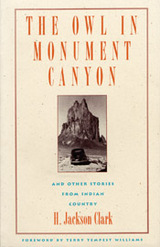

Walter Van Tilburg Clark, author of the classic novel The Ox-Bow Incident, was one of the West’s most important literary figures, a writer who contributed mightily to the tradition of viewing the West realistically and not through the veil of myth and romance. As a comparatively young man, he published three novels and a collection of short stories, then remained almost silent for the rest of his life, the victim of a paralyzing case of writer’s block. Now Jackson J. Benson, one of the country’s foremost literary biographers, has produced the first full-length biography of this brilliant, enigmatic, and ultimately tragic figure. Based on widely scattered sources—personal papers and correspondence; interviews with family members, friends, and others; and Clark’s unpublished stories and poems—Benson’s biography focuses on Clark’s intellectual and literary life as a writer, teacher, and westerner. Benson masterfully balances his engaging account of the experiences, people, and settings of Clark’s life with a penetrating examination of his complex psyche and the crippling perfectionism that virtually ended Clark’s career, as well as offering up a thoughtful assessment of Clark’s place in Western writing. In these pages, Clark lives again, a warm, complex, and ultimately anguished human being. Benson’s remarkably astute and sensitive biography is destined to be the book that readers and researchers consult first for information about this major western writer.
READERS
Browse our collection.
PUBLISHERS
See BiblioVault's publisher services.
STUDENT SERVICES
Files for college accessibility offices.
UChicago Accessibility Resources
home | accessibility | search | about | contact us
BiblioVault ® 2001 - 2024
The University of Chicago Press









